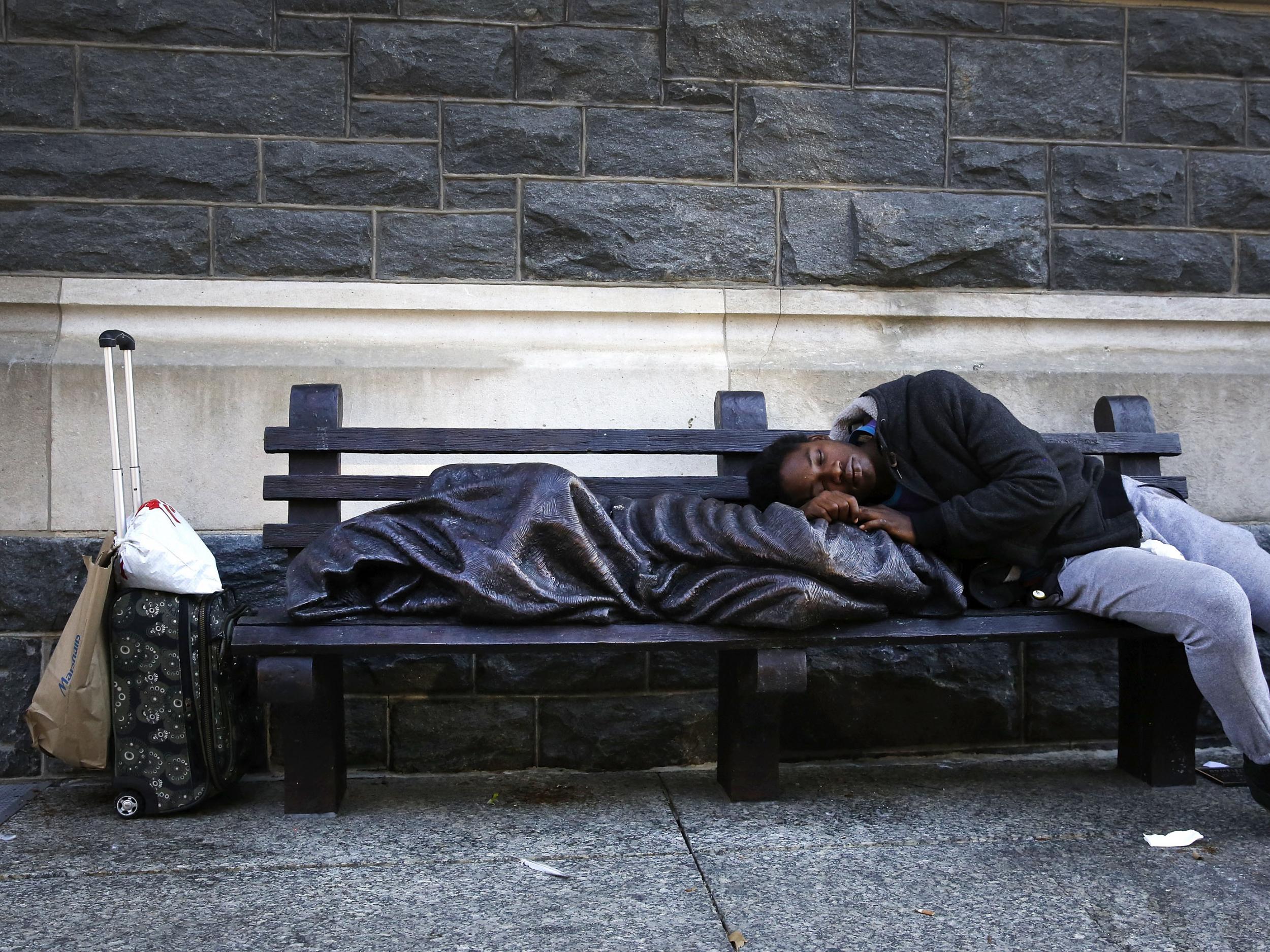Colorado city will use $1.5 million cannabis tax revenues to help the homeless
Aurora, the third largest city in the state, will donate funds to organisations which help low-income people with housing and community services

Your support helps us to tell the story
From reproductive rights to climate change to Big Tech, The Independent is on the ground when the story is developing. Whether it's investigating the financials of Elon Musk's pro-Trump PAC or producing our latest documentary, 'The A Word', which shines a light on the American women fighting for reproductive rights, we know how important it is to parse out the facts from the messaging.
At such a critical moment in US history, we need reporters on the ground. Your donation allows us to keep sending journalists to speak to both sides of the story.
The Independent is trusted by Americans across the entire political spectrum. And unlike many other quality news outlets, we choose not to lock Americans out of our reporting and analysis with paywalls. We believe quality journalism should be available to everyone, paid for by those who can afford it.
Your support makes all the difference.One of the largest cities in Colorado is donating millions of dollars raised by taxes on marijuana sales to local non-profit organisations which help the homeless.
Aurora will use a significant portion of the $4.5 million revenue from recreational cannabis to fund the Colfax Community Network, which helps low-income families to live in motels, apartments and provides food, clothing, hygiene products and nappies, as well as other local programmes.
A total of $1.5 million of the revenue has been earmarked for homeless efforts in the 2017 and 2018 city budgets, in addition to the $1.5 million already approved for the 2016 budget.
Colorado has already given the non-profit around $220,000 to assist with operating expenses, part of a two-year plan to deal with homelessness in the state’s third largest city.
“The Colfax Community Network is in extremely dire straits in that they do not have funds to continue operating,” Nancy Sheffield, director of Aurora neighbourhood services, told the Aurora Sentinel.
The Comitis Crisis Center and Aurora Mental Health will also be equipped with a van for their homeless outreach programs, along with two outreach workers each.
An Aurora Housing Authority landlord co-ordinator will now work full time instead of part time, thanks to a city allocation of $45,000. This position is vital as landlords are often reluctant to accept previously homeless people as tenants.
Council members are also considering a day center for the homeless, a place where they could wash their clothes, take a shower and receive mental health services.
Normally funded by revenue from red-light cameras, the sales revenue from cannabis has come as a welcome relief for non-profits, according to the Denver Post.
“We wanted to be able to show citizens that we are having a positive impact on the community and point to specific projects or initiatives to where that money is going to,” said city councilman Bob Roth.
Recreational sales of the drug started in October 2014, the first state to legalise recreational drug use. There are now at least 20 dispensaries in the city, but the number of marijuana licences is capped at 24.
Aurora city officials forecasted that pot revenue would double from $2.65 million in 2015 to $5.4 million in 2016. Revenue from cannabis is expected to clock in $6.4 million in 2017, but should remain flat from 2018 to 2020 once all the dispensary licences are used up.
In March Los Angeles also proposed to fund housing for homeless people through a tax on pot, which is estimated to bring in an annual $16.7 million.
Join our commenting forum
Join thought-provoking conversations, follow other Independent readers and see their replies
Comments